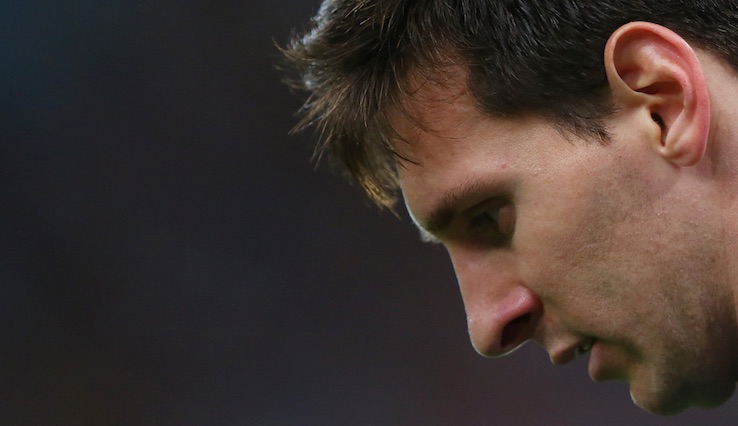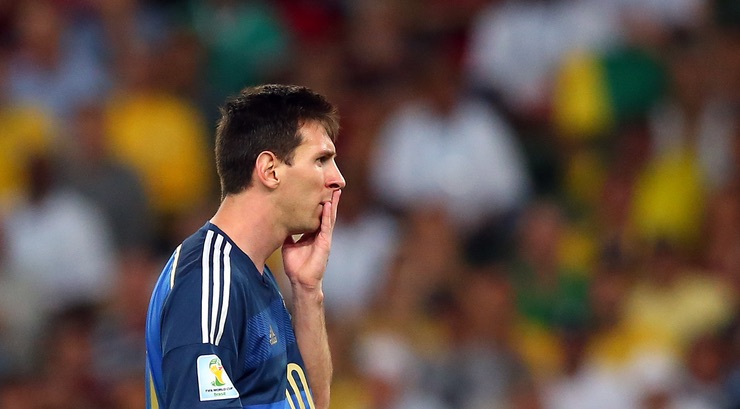Why is Soccer Psychological? If You Want To Be A Great Player, Get Over Your Mistakes … Quickly
SoccerToday’s columnist Dan Abrahams shares his insights and advice for success on the soccer field for players of all ages.
A global sports psychologist and author specializing in soccer, Abrahams is based in England and works with professional soccer players in the English Premier League (EPL). Abrahams has helped hundreds of soccer players – many of them who play in the English Premier League (EPL) and others who play across Europe. Abrahams has held contracts with QPR, Fulham, and West Ham among other clubs and works quietly, behind the scenes with many coaches from top clubs across Europe.
Abrahams has held contracts with QPR, Fulham, and West Ham among other clubs and works quietly, behind the scenes with many coaches from top clubs across Europe.
|
The Power of the Mind in the World of Soccer = Surviving Mistakes on The Soccer Field. “You feel that a mistake will be the end of the world. In soccer success, failure is so overt – you miss or you make your shot, you fail or you succeed on the field – it is very black and white.”
Why is Soccer Psychological?
As a sports psychologist, I specialize in two sports – soccer and golf. Golf came naturally to me since I was a professional myself. Soccer I learned through years of graft working with grassroots and non-league teams in England and eventually moving onto big teams and big players in the EPL.
One thing I constantly get asked by my golf clients is this: “Why do you work in soccer, Dan? It’s such an instinctive sport…how can it be psychological?” Well, my answer is varied.
The Brain Works in Milliseconds
For starters, the brain works in milliseconds and is constantly throwing out thoughts and feelings as a player competes.
It doesn’t matter how fast a sport is … the brain always works quicker.
Soccer works in seconds – it takes a second to score a goal, it takes a second to play a pass – but the brain works in milliseconds. The brain trumps the sport of soccer for speed every single time.
Out of Our control – So much of the game is out of a player’s control. This makes it a psychological challenge.

The state of the pitch, the weather, where you are playing, who is in the crowd, the quality of the team you are playing, how your teammates play … all of these are out of your complete control.
Anyone of them can cause a stress response. Anyone of them can cause doubt, worry or anxiety. They can engulf you in emotion and cloud your judgment under pressure.
Always Being Judged
At a certain level of the game, it’s easy to feel that you are constantly being judged. In fact, you are. You feel you have to play at your best all the time to keep your place in the team. You feel that any error can see you dropped.

You feel that a mistake will be the end of the world. In soccer success and failure is so overt – you miss or you make, you fail or you succeed. In that respect, your ability and trajectory in the game are heavily influenced by how well you deal with failure.
The Brain Craves Certainty
And yet soccer delivers an uncertain environment. Will we win? Will I play well? Are my teammates good enough? Did I train hard enough? The brain is constantly trying to predict the future – it’s a survival mechanism that has helped humans survive and deal with the environment for thousands of years. Yet soccer — like all sports — delivers an environment that is overtly uncertain and so taps your stress response.
The Brain Loves the Ball
The brain is attracted to the most important thing in its environment. Again it’s a survival mechanism – the caveman would never have survived had he seen the saber tooth tiger and not paid careful attention to it.

On a soccer pitch, the ball is the most important thing. Yet this, I find, is one of the biggest causes of poor development in soccer.
Over the past decade and a half, I have seen hundreds of players who have failed to progress in the game because they ball-watched throughout the game. They never developed the ability to see the game around them, so they couldn’t see space and they couldn’t see their teammates or the opposition. All because the ball is so attractive to the brain.
In soccer you have to, for the most part, forget the ball and focus on the space!

Soccer is a game of mindset. It’s a game of focus and confidence and space and intensity and will and determination. And these are just a few to start with.
Related Articles: Soccer Lovers’ Best Ever Soccer Book Guide: Soccer Tough: Simple Football Psychology Techniques to Improve Your Game by Dan Abrahams
Dan Abrahams is a global sport psychologist specializing in soccer. He is based in England and has some of the leading turn-around stories and case studies in English Premier League history.
Abrahams is sought after by players, coaches and managers across Europe and his 2 soccer psychology books are international bestsellers. He is formerly a professional golfer, is Lead Psychologist for England Golf and he holds a degree in psychology and masters degree in sport psychology.







